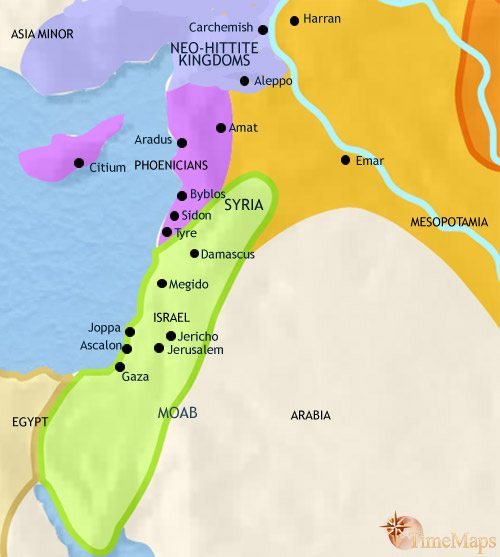Hidden Treasures: Finding the Two-Line Promise Everywhere
Have you ever started reading a book and suddenly discovered the key that makes every page come alive? Perhaps you’ve experienced that moment when a theme or pattern jumps out at you, and suddenly the entire story takes on richer meaning. That’s exactly what happens when we realize that everything in Scripture revolves around God’s two-line promise to Abraham. What follows this covenant aren’t random biblical events but carefully selected stories that showcase God fulfilling His promise—blessing His people and, through them, blessing the world.
Why does Scripture include these specific events and not others? Consider this remarkable statement from the apostle John, after writing about Jesus’s earthly ministry:
John 21:25 – Jesus did many other things as well. If every one of them were written down, I suppose that even the whole world would not have room for the books that would be written.
If that’s true about just thirty-three years of Jesus’s earthly life, imagine trying to document everything God has done since creation! When we read Scripture, we must remember—of everything God could have told us across millennia of human history, He chose these specific stories for a reason. Let’s see how this two-line lens transforms even seemingly minor verses into profound revelations.
Divine Details: Numbers That Tell God’s Story
Take this verse that most Bible readers skim right past:
Exodus 15:27 – Then they came to Elim, where there were twelve springs and seventy palm trees, and they camped there near the water.
At first glance, this might seem like a simple travel log, a geographical footnote in Israel’s wilderness journey. But look closer at those numbers: twelve springs and seventy palm trees. Remember where we’ve seen these numbers before? Twelve—the tribes of Israel wandering in the wilderness. Seventy—the number of ethnic groups from the Table of Nations in Genesis 10.
Suddenly, this isn’t just about a convenient rest stop; it’s God painting a picture of His promise! The twelve springs (Israel) providing life-giving water to nourish the seventy palm trees (the nations). Even in this seemingly mundane detail, God is reinforcing His master plan—Israel exists to bring blessing to all nations.
From Blessing to Purpose: The Hidden Connection
This theme echoes throughout Scripture. Consider these familiar words often spoken at the end of church services:
Psalm 67:1 – May God be gracious to us and bless us and make his face shine on us—
Many Christians know this verse by heart—it’s the Top Line, the promise of God’s blessing to His people. But how many of us know what comes immediately after this?
Psalm 67:2 – so that your ways may be known on earth, your salvation among all nations.
There it is—the Bottom Line! This reveals the purpose behind God’s blessing. His favor isn’t meant to stop with us; it’s meant to flow through us to all nations. God blesses us not just for our benefit but so that the entire world will come to know Him.
Strategic Positioning: God’s Geographic Purpose
Let’s talk about the Promised Land itself. When God led Israel through the wilderness, He was taking them to a specific piece of real estate—Palestine, that small strip between the Mediterranean Sea and the Jordan River. But why this particular location out of all possible places on earth? The prophet Ezekiel reveals God’s strategic purpose:
Ezekiel 5:5 – This is what the Sovereign Lord says: “This is Jerusalem, which I have set in the center of the nations, with countries all around her.”
 Think of it as God’s divine placement strategy. The Top Line blessing was the valuable land itself given to Israel. The Bottom Line? This was the ancient world’s ultimate crossroads! The three major kingdoms—Egypt along the Nile, Mesopotamia between the Tigris and Euphrates, and the iron-working Hittites in modern-day Turkey—all had to pass through Israel to trade with each other.
Think of it as God’s divine placement strategy. The Top Line blessing was the valuable land itself given to Israel. The Bottom Line? This was the ancient world’s ultimate crossroads! The three major kingdoms—Egypt along the Nile, Mesopotamia between the Tigris and Euphrates, and the iron-working Hittites in modern-day Turkey—all had to pass through Israel to trade with each other.
In those days, merchants would offer sacrifices to local gods when entering foreign territories—a kind of spiritual customs declaration. Now imagine their confusion when entering Israel and finding no idols! When they asked about Israel’s God, they’d hear names like “Jehovah Jireh” (Yahweh Provides) or “The Lord our Righteousness.”
Picture their amazement: “Your God provides for you? He makes you righteous? Our gods only demand from us!” These traders, without even realizing it, became unwitting missionaries, carrying stories of Yahweh back to their homelands as they traveled the ancient trade routes.
Heaven’s Census: The Register of the Peoples
Finally, let’s peek into heaven’s library. While we often hear about the Lamb’s Book of Life, Scripture reveals another fascinating volume called The Register of the Peoples:
Psalm 87:4,6
⁴”I will record Rahab and Babylon among those who acknowledge me—Philistia too, and Tyre, along with Cush—and will say, ‘This one was born in Zion.'” ⁶The Lord will write in the register of the peoples: “This one was born in Zion.”
Close your eyes and imagine this divine record—a book with a chapter for every ethnic group that has ever existed, even those now extinct. Within each chapter, a growing list of names, each followed by the phrase “this one was born in Zion.” This isn’t just any record—it’s God’s evidence that His Bottom-Line promise will be fulfilled, proof that all nations will indeed be blessed through His people.
This is how God’s story unfolds throughout Scripture—each page revealing another facet of His magnificent plan to bless all peoples through His chosen people. The question remains: Does this pattern continue into the New Testament? Does Jesus Himself reinforce this same two-line promise?
